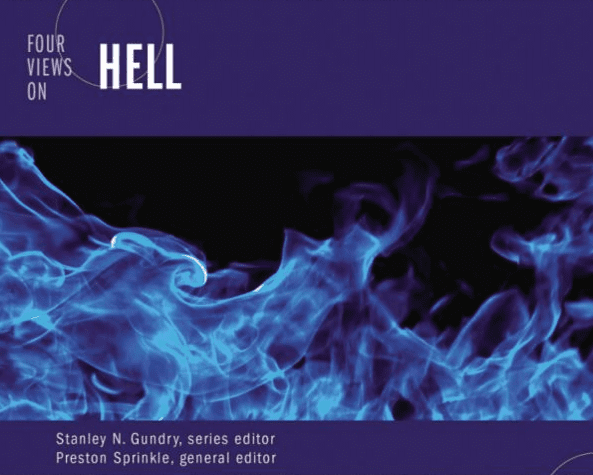This post is by Jeff Cook, and it examines how “desire” is connected to our view of the fate of the wicked.
Erasing Hell: On Desire (Jeff Cook)
I realize some of you are tiring of this discussion, but I love the hell debate taking place this year. The dialogue is much bigger than the dark side of the afterlife. The questions being raised about hell cannot be separated from an analysis of God’s character, how we interpret scripture, how Christians disagree constructively, what we can know about God and his intentions, as well as the nature of goodness, justice and love. The central pillars of philosophy—epistemology, ethics, and metaphysics—as well as the heart of theology—God’s attributes and self-disclosure—are each under reconsideration because of this debate at the most popular levels of American Christianity—and that’s a great thing.
What does it tell us/you that many of us “wish” there wasn’t an eternal hell? Do you think God could have created a world in which there would be no hell? Why, then, do you think there is a hell?
Hell is making us all think really hard about God.
After reading Erasing Hell: What God said about eternity, and the things we made up a handful of questions came to my mind and over the next month I would like to explore a few with you. These are not meant as a critique of Sprinkle and Chan’s book. Instead, Erasing Hell will serve as a launching point for considering beliefs I think Christians ought to be more critical of.
Let’s start with emotions and desires. Frequently in Erasing Hell, Sprinkle and Chan said they “did not” want hell to exist. For example:
“I would love to erase hell from the pages of scripture” (14), “I had to figure out if the Bible actually taught the existence of a literal hell. How great would it be if it didn’t” (14), “Do you want to believe in a God [who shows his power by punishing non-Christians forever]? Here’s my gut-level honest answer: No” (22), “I would love to think, as some have suggested, that the Bible doesn’t actually say a whole lot about hell. I would love to stare at my friend’s face when asked that question we all fear—“do you think I’m going to hell?” and say “No! There is no such place!” (108) (See also 25, 72, 135).
Chan and Sprinkle are good, praise-worthy men, but let’s assume—as they do—that their intuitions concerning hell are skewed 180 degrees from those of God. Let’s further assume that God has decided to create a location of everlasting, conscious torment that will eventually be populated with no less than a couple million souls. And let’s also assume that there are some perfectly sane, exceedingly good and just reasons that God has for creating such a future for the damned.
If this interpretation of hell is best, there must be something worthwhile about hell that stands out to God, that He gravitates to, snaps his fingers and realizes, “Ahhh, that is the best possible option. I am going to create a world whose story ends with that kind of judgment, that kind of heaven, that kind of hell.” So what is it? Why is eternal conscious torment so compelling to God? What makes the creation of this kind of world with this kind of hell so “desirable”? It seems many of us begin in the same place as Chan and Sprinkle who confess, “What causes my heart to ache right now as I’m writing this is that my life shows little evidence that I actually believe this” (107).
Now, I fear some will say eternal conscious torment is God’s “only” option—as though an all-powerful being is in any way determined or that our God somehow lacks the creativity or foresight to avoid a world in which he must initiate a hell. Sprinkle and Chan do not make this mistake; they see God as significantly free (163). They know that God can eliminate human souls, he can save all, he can turn back history and erase the fall, he can allow the damned soul to pass into unconsciousness or out of existence (and on and on). Being both all-powerful and ridiculously inventive has a ton of benefits. Given the assumptions above, we must assume that God desires a world with everlasting torment.
In case it’s unclear what I would like to see, I’ll give you an example of what such answers might look like “since I do want a hell to exist.” As many of you know, I think the hell described in the Bible is the place where death, satan, and the souls of the damned are destroyed. This view is often called Annihilationism, and it strikes me as the best way to understand the numerous passages on hell, judgment and the future of the wicked. I have no trouble reconciling this view of hell with my ideas about justice, love, mercy, and the character of God. Consider (as an example of what I want from you in defense of eternal conscious torment) a few quick reason I desire a world with such a hell. On this view…
(1) Hell is the end of all “death and mourning and crying and pain”, for hell is the end of evil.
(2) Hell allows human freedom to reach its climax, for those desiring to live eternally have united themselves to the only Source of Life, those who have chosen sin as master have chosen to unite themselves to death—and everyone gets what they want.
(3) Hell is supremely merciful. To end the life of someone who has irreversibly wed themselves to sin is an act of exceeding kindness (lest such souls continue on zombie-like for all eternity).
(4) Hell allows God to punish a Stalin or a pornographer or a slave trader in exactly the right amount before allowing their souls to pass out of existence.
(5) The location of hell is clear. Because Christ is reconciling all things to himself, there is no room in the cosmos for a location where sin and death continue their mastery.
I could go on, but these outcomes of hell seem both desirable to me, and I could see them being desirable to the all-knowing, supremely loving God when he decided—in the beginning—which reality he would actualize. These are the sorts of answers we need to provide thinkers like Chan and Sprinkle who confess they cannot get there and mourn deeply because of it (p. 14).
So bring it strong and pithy: Why has God thought (from the moment he selected the final outcome of our universe) that initiating the eternal conscious torment of a couple million souls was the best possible move? Why does God want such a hell to exist?
Of course if we can’t provide a very robust set of answers—even when speculating and without the constraints of “truth”—that might be just another red flag for the traditional view.
Jeff Cook teaches philosophy at the University of Northern Colorado, pastors Atlas Church (Greeley), and is the author of Seven: the Deadly Sins and the Beatitudes (Zondervan, 2008) and Everything New (2012).















